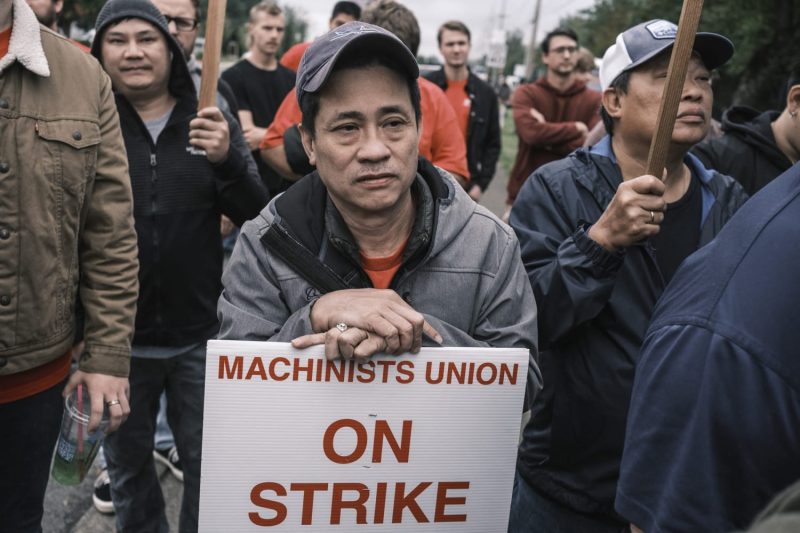Boeing, the global aerospace titan, has been embroiled in a bitter dispute with its unionized workforce, leading to a strike that has now entered its second week. In an attempt to soften the discord and hopefully bring the strike to an end, Boeing has increased its offers to the union, marking the latest attempt to find a resolution in a situation that has disrupted production and caused widespread repercussions.
The crux of the labor contention revolves around multiple issues, primarily wage discrepancies, job security, and the duration of shifts. The personnel, under the representation of the International Association of Machinists and Aerospace Workers (IAM), have been on strike to seek resolution on these long-standing grievances.
As the strike commenced, Boeing, obviously cognizant of the inherent repercussions to its operations, initially presented an offer to the union. However, that offer was swiftly rejected as inadequate, thus necessitating a stepping up of efforts by the company to quell the unrest.
Sweetening its offer in the hopes of ending the strike, Boeing has pledged to increase wage increments over the duration of the proposed five-year contract. Building on its initial offer, the company has committed to annual adjustments, with an emphasis on ensuring that these increases align with, or even exceed, the rate of inflation.
Furthermore, Boeing has also presented concessions on the issue of job security. Staying mindful of union’s adamance on this point, the company has vowed to take steps to limit the outsourcing of jobs. In addition to this, Boeing has thrown in incentives for early retirement, an option designed to potentially defuse any further labor disagreements.
Shift durations and the associated overtime payments have been another contentious issue in the labor dispute so far. To mitigate this, Boeing has proposed alterations to shift patterns, thereby promising a more balanced work-life schedule for the workforce. Alongside this, the company also intends to restructure its overtime policy in line with union demands.
While Boeing’s improved offer appears as a significant move to address the ongoing labor dispute, it remains to be seen just how receptive the union will be to the sweetened pot. It is crucial to remember that the impact of the union’s response will greatly influence the company’s future.
Another major consideration is the global impact of the strike and the subsequent disruptions it has caused. Delays in production and delivery have led to sizeable losses for the company. Even as the offer is prepared with the hope of ending the strike, Boeing must deal with reassuring their investors and stakeholders about the future prospects of the company.
Boeing’s sweetened proposal is a clear demonstration of the company’s willingness and commitment to resolving the ongoing labor strife. The company, acknowledging the workers’ grievances while balancing it with its operational requirements, has made evident attempts to find common ground. However, it is ultimately up to the union to decide if these fresh concessions and commitments will be enough to end the strike.




